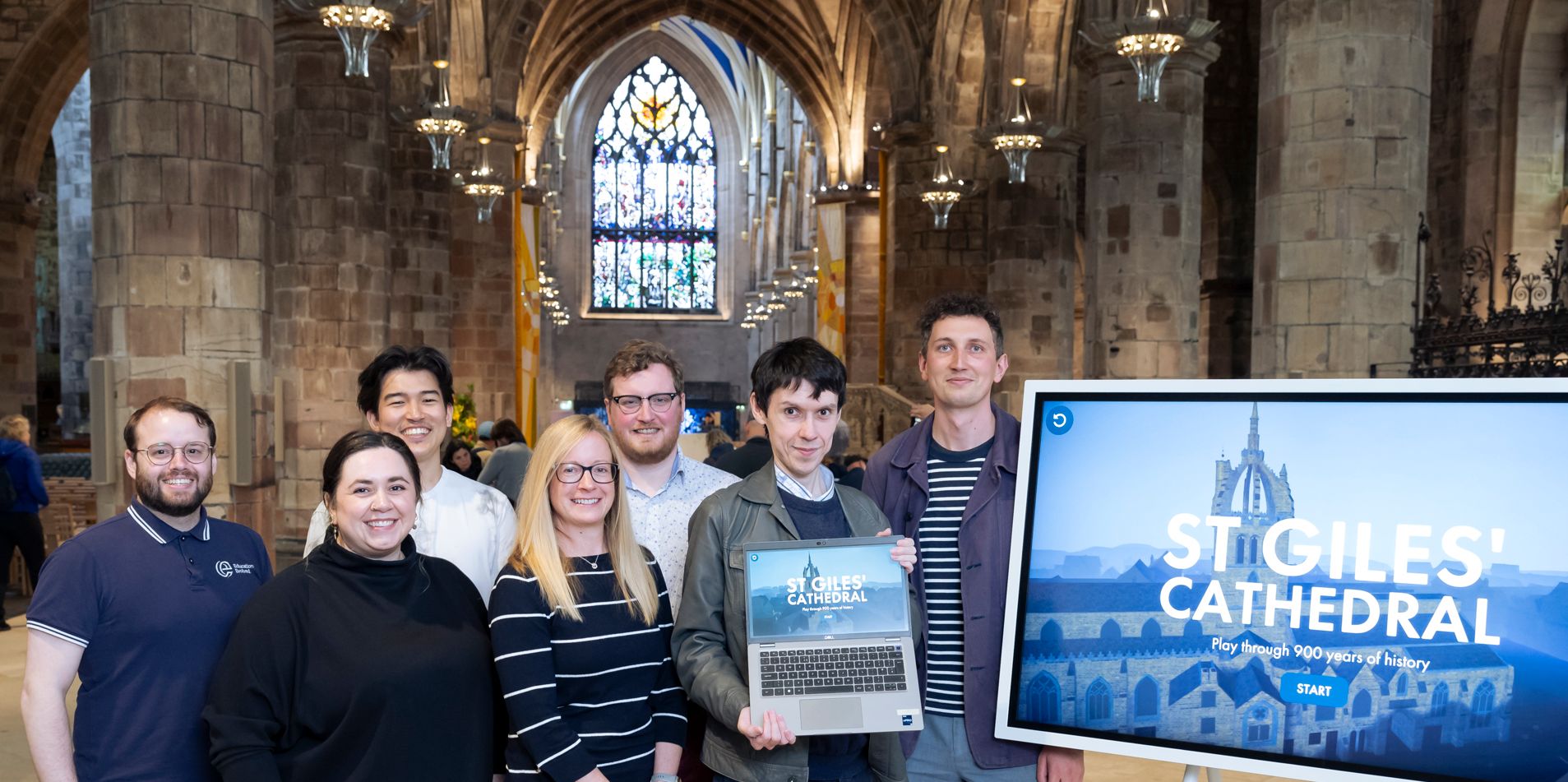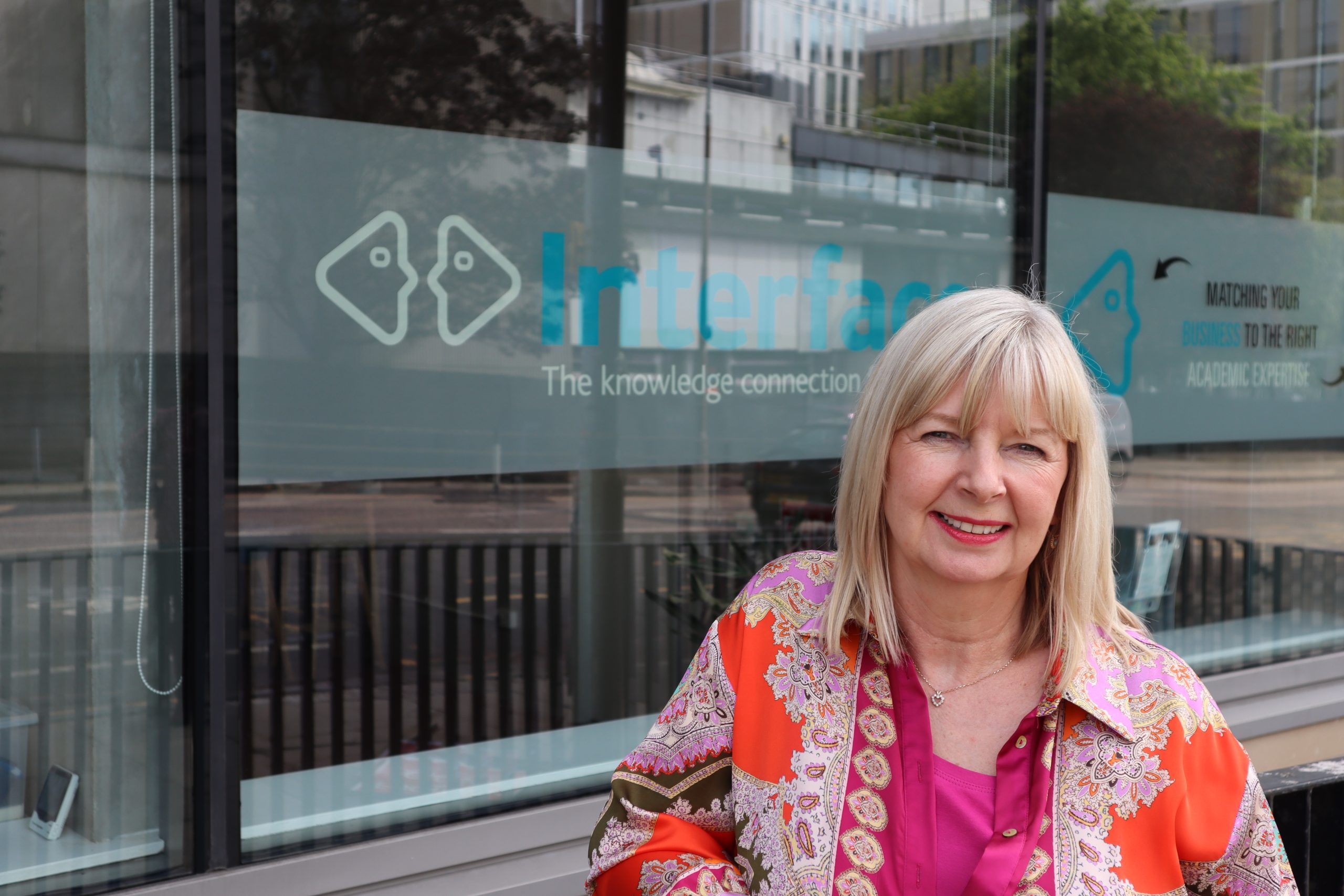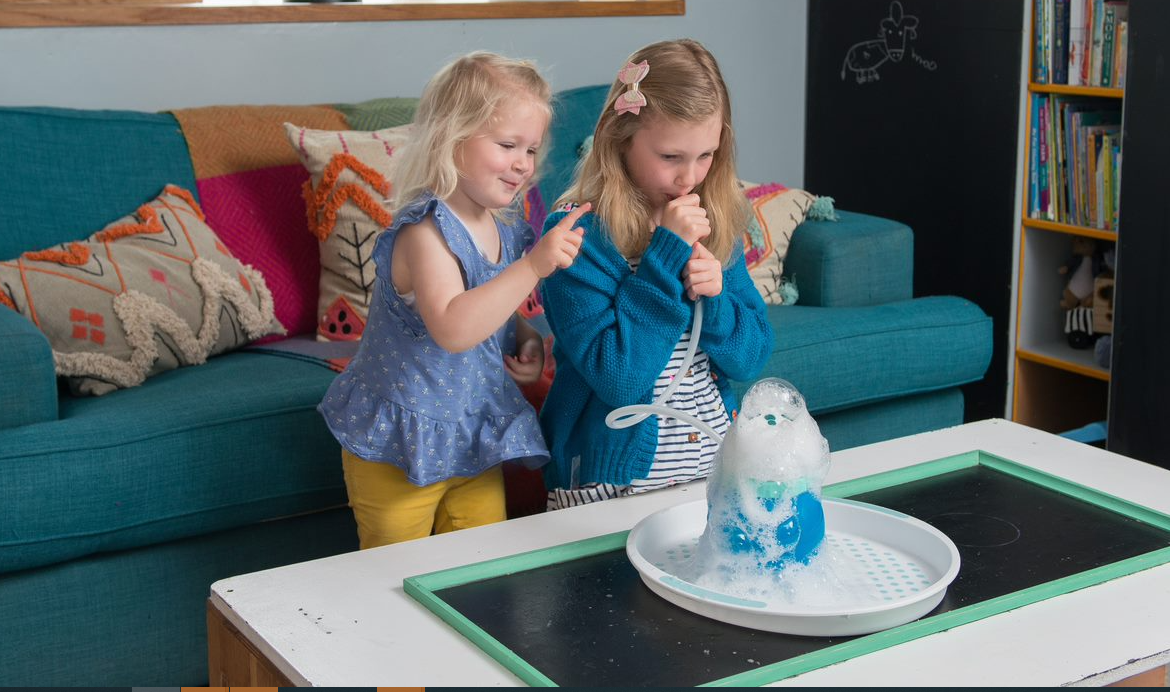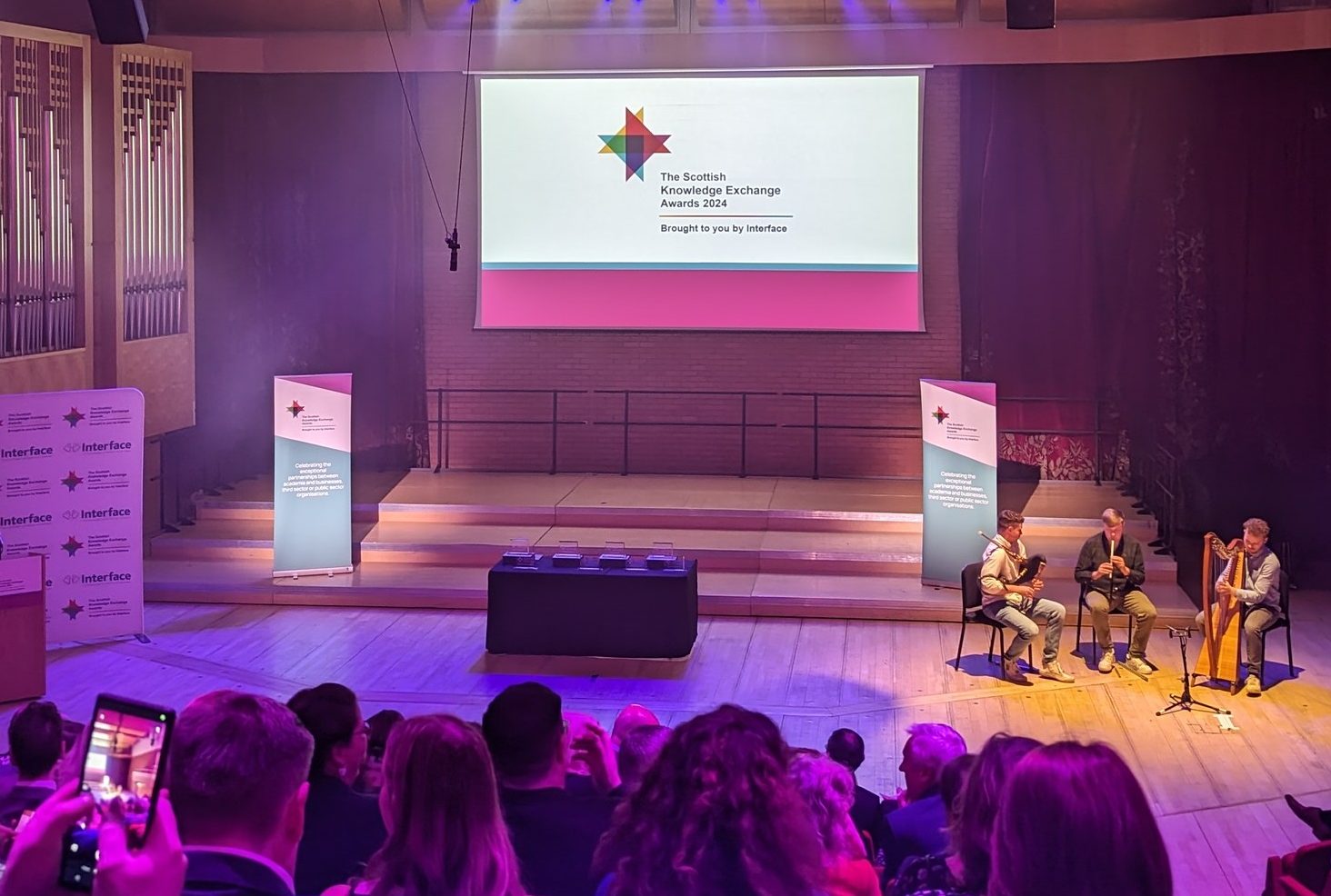Blog
How to tame your dragon
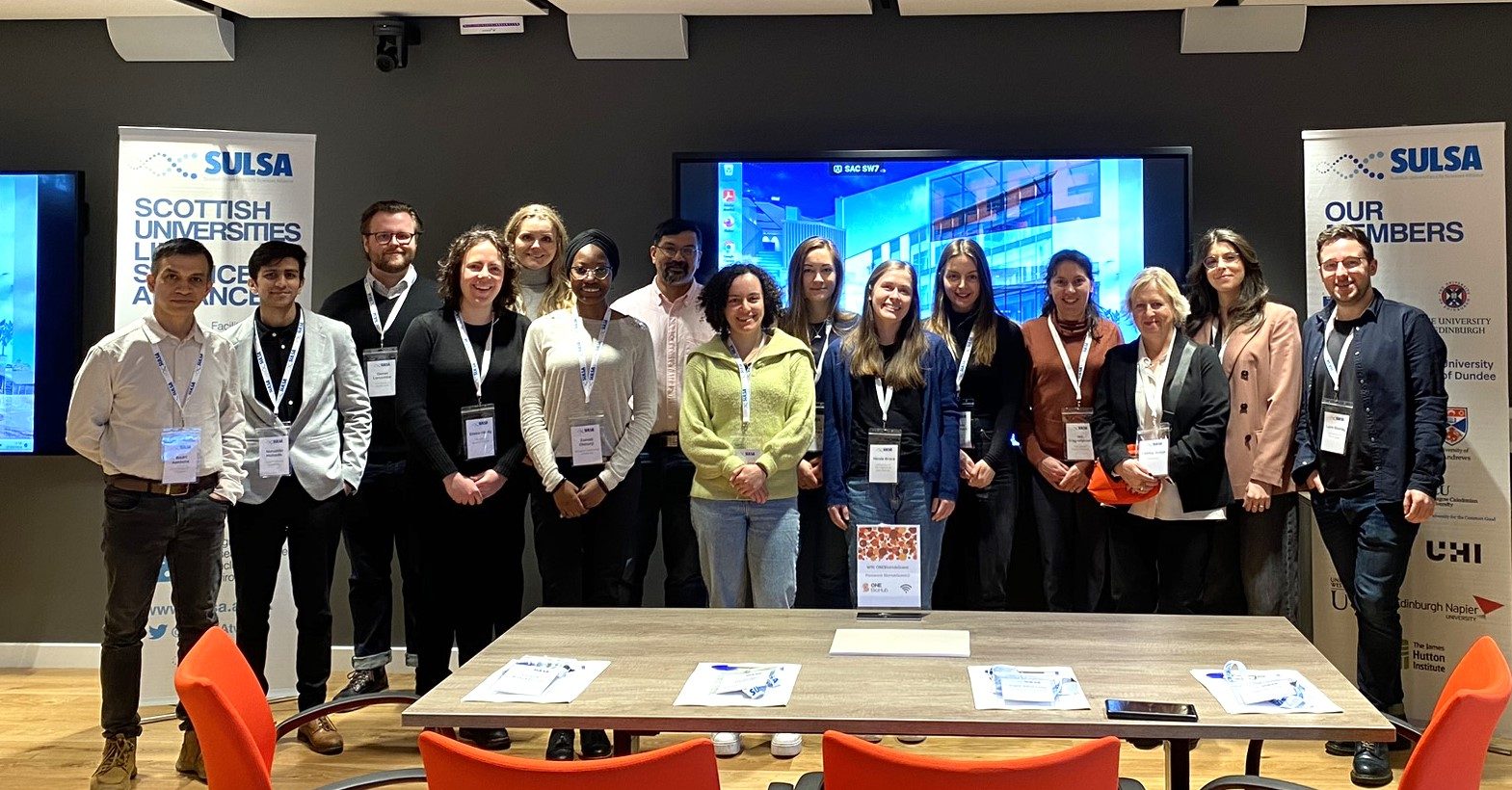
SULSA (Scottish Universities Life Sciences Alliance) and Interface have joined forces in a unique programme supporting early career researchers unlock their potential, whether they chose to stay in academia, set up their own business or juggle both simultaneously.
Here we put a few questions to Dr Ally Hughes, SULSA Project Manager, Lesley Judge, Strategic Programmes Executive, Interface, and Shelley Breckenridge, Business Engagement Manager, Interface, to find out more.
What’s the background to Forging Futures?
On a dreary day during lockdown, SULSA Director Dr Ali McIntosh connected with Dr Tony Bradshaw from MyFuturePlan and the two instantly connected on their shared passion for helping researchers unlock their potential by building the skills, networks and confidence required for them to be successful in their chosen career. Many Zoom calls later, Forging Futures was born bringing together Tony’s expertise, Skillfluence’s training programmes, Interface’s extensive network, and SULSA’s community of life sciences researchers. This was a pilot programme with only 24 places available – which quickly expanded to 27 as we welcomed our first cohort in 2021. It has now become a core part of SULSA’s offering. Every stage of this programme is full of fun and learning from reviewing applications, bringing the cohort together for training, and getting to know them as they take on their role as SULSA’s Industry Engagement Ambassadors.
Why is it important?
Long gone are the days when scientists locked themselves in a room working in silo on their research obsessions. Today’s researchers are looking at how their work can be applied to the real world, and this isn’t possible without a strong network and an understanding of how industry works. The Forging Futures programme is designed to equip researchers with the tools and confidence to engage with industry at an early stage of their career. Whether this is for the purposes of bringing their skills to industry, forming exciting new collaborative projects, or getting a feel for the landscape so they can spin-out their own ventures, Forging Futures is here to help them build the necessary skills and connect them with the life sciences industrial community here in Scotland. Participants undergo 6-weeks of training with Skillfluence and undergo personality profiling with Dr Tony Bradshaw at MyFuturePlan before becoming SULSA’s Industry Engagement Ambassadors where they are asked to ‘pay-it-forward’ by coordinating industry engagement activities and events. These have included the Industry Insights webinar series with IBioIC, the industry-academia networking event IndAc22 (which has now been adapted into SULSA’s conference) and institutional research and symposia talks.
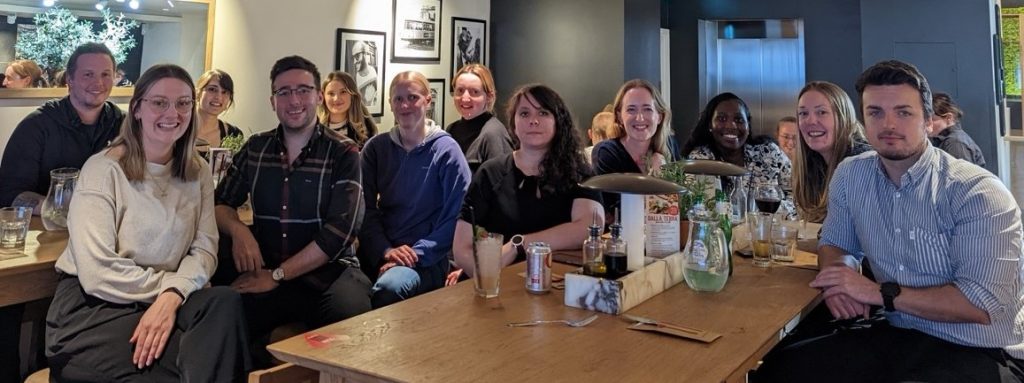
The first Forging Futures cohort celebrating a job well done after IndAc22 in Edinburgh
What drew you to Interface as a strategic partner in this programme?
Interface are the perfect partner for this programme as they work across academia and industry and support collaboration between these two worlds. They have a wealth of experience in this space and a vast network that extends beyond just life sciences in Scotland. The team at Interface are also very personable, easy to work with, and the utmost professionals with a keen eye for detail. It’s been an absolute joy to work with Shelley Breckenridge and Lesley Judge on this programme.
The Dragons’ Den element is new this year, what do you think it has added to the programme?
The Dragons’ Den element was an exciting addition this year, thanks to financial support from the Scottish Enterprise Ecosystem Fund. Dragons’ Den gave the participants a chance to put all the skills they had just learned to the test in a safe and fun environment. It also pushed the researchers out of their comfort zone and really made them think about the commercial potential of academic research. Thanks to our challenge sponsor, Highlands and Islands Enterprise, we were able to set them a real-life challenge to address looking at Scotland’s natural resources for commercial viability. It was also a great opportunity for the cohort to get to know one another better and network with our esteemed judges Dr Cait Murray-Green (Consultant, Innovator & Entrepreneur, CEO Strategic Scientific Consulting), Prof David Blackbourn (Director of Institute of Medical Sciences and Professor of Virology, University of Aberdeen), Dr Jennifer Scott (Senior Entrepreneurship Manager, Opportunity North East), and Dr Andrea McColl (Senior Development Manager, Life Sciences, Highlands and Islands Enterprise).
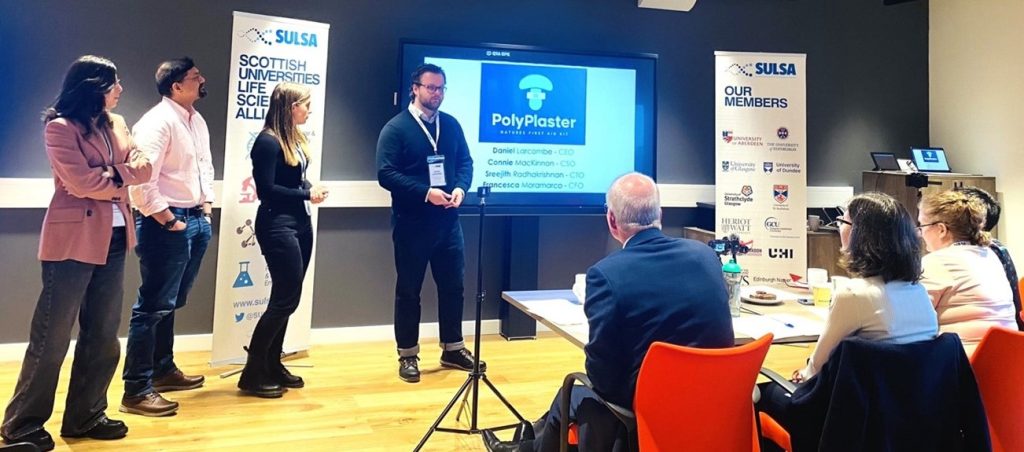
The winning Dragons’ Den team giving their pitch on their company PolyPlaster
How can PhD /Post Doc students get involved?
Forging Futures runs every two-years and is open to PhD students and Postdoctoral Researchers from across SULSA’s 13 Higher Education Institute members. The next round of application will open in autumn 2025 on the SULSA website. But keep an eye on our Twitter (X) and LinkedIn for events and activities organised by our current cohort all focusing on academia-industry engagement. We will also host a two-day conference IndAc24 on October 23rd and 24th at the Technology Innovation Centre (TIC) in Glasgow. Tickets will be on sale soon!
Testimonials
“A wonderful experience for those coming from academic background.”
“I would highly recommend this experience! Every academic should have the opportunity to participate in a Dragons Den or similar event at least once during their professional career.“
“Initially I joined the event because I was curious what it was about, but the more time we spent researching our idea, the more invested I got. I can absolutely understand the pull of start-up’s now!“
What’s Interface’s role in the Forging Futures programme?
Interface has a long-standing track record of bringing together Scotland’s business and academic communities to forge collaborative research & development projects to deliver economic, environmental and social prosperity for Scotland. This extensive experience makes us really well-placed to support early-stage career researchers on how to engage with industry, to deliver impact and build successful partnerships.
Having previously supported the first cohort of Forging Futures researchers in 2022 through participation in workshops, for 2023/2024, Interface expanded its involvement in the scheme and delivered three key activities: a webinar launch of the Dragons’ Den Challenge, with Challenge sponsor Highlands and Islands Enterprise, and an industry speaker, sourced by Interface; a welcome presentation at the Forging Futures launch event and facilitation of an industry guest panel including academics and start-up founders in Glasgow; and finally, the design and delivery of the Dragons’ Den Challenge event at the ONE BioHub Aberdeen.
Alongside this Interface provided digital resources including case studies, blog posts, news and more, as well as connections via LinkedIn and access to guest speakers, role models and industry experts across the three events.
Why is it important to boost industry engagement and entrepreneurial skills amongst academics?
Having worked closely with the SULSA Forging Futures team, and listening to the early-stage career researchers themselves, the value of developing entrepreneurial skills and engaging with industry can’t be underestimated. Such skills are transferable, whether researchers remain in academia, commercialise their research, or move into industry. The ability for researchers to meet and engage with industry and academic role models, those who’ve been there and done it, setting up their own companies or commercialising their research, is hugely valuable.
For Interface, a healthy pipeline of academics equipped to engage with industry is critical to the work we do. And with our wide network of contacts, project management capabilities and ability to bring people together we have been able to work with our partners at SULSA to deliver a great experience for the researchers. It’s certainly something we are keen to do more of going forward.
Tell us a bit about the Dragons’ Den event?
There were four Forging Futures teams (a total of 16 researchers) pitching for an investment of £50k from a panel of four industry “dragons.” The challenge was set by our Challenge sponsor, Highlands and Islands Enterprise. We were fortunate to have four brilliant industry experts for the judging panel, all of whom had diverse business experience as well as highly relevant academic credentials. We designed the event so that the researchers and judges could get to know each other and really engage, which was brilliant to see. The judges took time to get to know the cohort and find out about their research and their experience of Forging Futures. Like the industry judges, we were blown away by the professionalism of all four team’s pitches and the level of detail they had put into them. All teams really “got” the remit of the challenge and put their hearts and souls into it, from marketing and branding to finance and technical, not forgetting the team spirit! We were delighted to see all teams respond to some really challenging questions from our industry judges too.
Were you rooting for the students as they did their pitches?
Definitely! We took a lot of photographs of each team and the event was the highlight of our collaborative work with the Forging Futures programme! Seeing the culmination of everyone’s collective efforts in the final pitches was immensely rewarding and great fun. It was also heartening to see some real peer to peer support between Dragons’ Den challenge teams in the cohort. Although this activity was competition based, it’s clear that all four cohort teams were supportive of each other; another valuable outcome of the Dragon’s Den challenge activity: the opportunity for peer-to-peer learning and sharing, in a cohort of researchers from different academic institutions across Scotland.
Main image shows Shelley Breckenridge and Lesley Judge from Interface with the Dragons’ Dens teams at ONE BioHub in Aberdeen.
